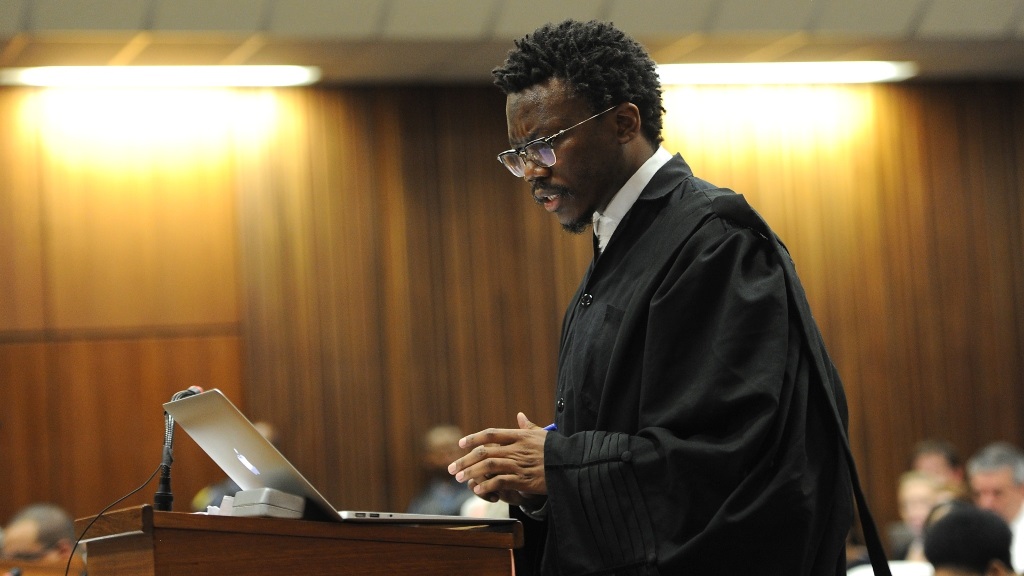
- The Zimbabwe Immigration Federation wants Home Affairs Minister Aaron Motsoaledi’s decision not to renew the special immigration dispensation to be interdicted.
- The group wants the Gauteng High Court in Pretoria to decide on its application to review and set aside the minister’s decision.
- The Helen Suzman Foundation is also challenging the minister’s decision.
Motsoaledi’s decision means that about 178 000 Zimbabweans and their dependents face being forcibly returned to their home country.
The group is seeking interim relief from the Gauteng High Court in Pretoria to “safeguard” the constitutional rights of permit holders to ensure they are not “prematurely” deported or arrested, among other things.
On Thursday, advocate Tembeka Ngcukaitobi SC told a full Bench of the court that the home affairs department should allow permit holders to stay in South Africa temporarily while the judicial process ran its course.
This is the second application that the court is hearing regarding the matter.
The Helen Suzman Foundation (HSF) is also challenging Motsoaledi’s decision after he announced in December 2021 that the ZEP would not be renewed.
In 2008 and 2009, during the economic and political strife in Zimbabwe, many of the country’s citizens fled to South Africa. At the time, the South African government decided to create a blanket exemption so that Zimbabweans could get permits to live and work in the country legally.
The permits were extended by creating another permit over the years, which has since become known as the ZEP. About 178 000 ZEP holders have been in South Africa for more than a decade.
The minister then decided not to renew or create another permit for ZEP holders, as had been done in the years before. He then extended the validity of ZEPs to help holders organise their affairs.
But come 1 July, ZEP holders would be in the country illegally and applying for asylum would not be a solution, Ngcukaitobi argued on Thursday.
He said most of his clients stated under oath that they wouldn’t qualify for alternative visas, like the general work visa, the critical skills visa and the business visas. In any case, many of them had already experienced delays in the processing of their visa applications, he added.
Ngcukaitobi said if permit holders were deported, they would be separated from their children attending school in South Africa. Some would lose jobs and others who ran businesses would have to shut them down, he added.
Describing it as a “human catastrophe”, he said:
He said what was happening in Zimbabwe was “much more depressing” than what the minister of foreign affairs in that country was letting everyone believe. He said the situation in Zimbabwe remained dire because the socioeconomic conditions in that country had not improved.
Ngcukaitobi also questioned how South Africa could expel so many people on 1 July, saying it would be adverse for the minister to refuse to extend the benefits until the High Court decided on the matter.
“We are trying to avoid a humanitarian crisis by coming to court today (Thursday). They (his clients) want an interim relief to be in the country until the justice system runs its course,” the advocate added.
Advocate Sean Rosenberg, for the Department of Home Affairs, however, said throughout 2021, permit holders knew what would happen, and many of them would have applied to address their positions.
Some would even be entitled to asylum seeker permits, he added.
He said any asylum seeker representing himself at a refugee centre would be entitled to remain in the country until their status was determined. He said the suggestion that there would be an “apocalyptic kind” of situation on 1 July 2023, and the picture sketched of what would happen after that date, was “exaggerated”.
Rosenberg said the interim relief was not “warranted and not appropriate”.
But Ngcukaitobi said the government should have conceded that come 1 July, no one would be arrested or deported. He said by doing that the government would be respecting judiciary processes.
On the suggestion that the permit holders should apply for asylum, Ngcukaitobi said this was not a “problem” of asylum seekers but of economic migration.
“To say economic migrants should turn themselves into asylum seekers does not make sense at all. They (government) should be able to tell the court that no one will be deported. Why can’t they say that?”
Judgment has been reserved.



